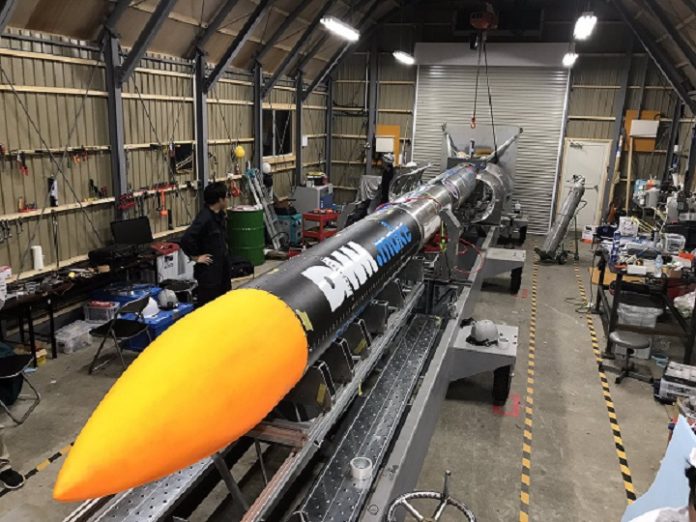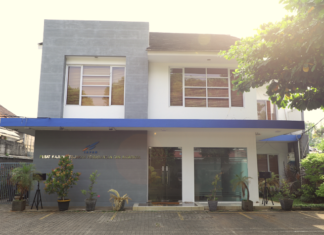On 30 July 2017, at 16:31 JST (Japan Standard Time), Japan’s first private launch services company Interstellar Technologies attempted to launch its first liquid-fuel sounding rocket, Momo, from its site at Taiki-Cho, Hokkaido.
The launch was aborted 66 seconds after the flight because of a failure in the telemetry systems, which made the ground station lose contact with the rocket. An emergency stop was performed, causing Momo to land in the Pacific Ocean, 6.5km away from the coast.
Originally slated for 28 July, the launch was delayed numerous times throughout the 28th and 29th – most commonly due to bad weather, but also due to a problem with the liquid oxygen tank and an inability to ensure maritime safety. The team is currently investigating the causes of the telemetry malfunction.
Momo is 9.6m tall and weighs 1,000kg, with the ability to carry a 20kg payload to an altitude of slightly more than 100km, making it Interstellar’s largest rocket to date. It is designed to achieve a microgravity environment for approximately 4 minutes, with a payload that is then parachuted into the sea for recovery.
The entire process of designing, manufacturing and operating the rocket was conducted in-house by Interstellar. Part of the cost of building it was funded through a Japanese crowdsourcing website, Campfire, which raised 27 million yen from 735 people.
Interstellar Technologies aims to offer low-cost launch services, and was started in 1997 by a group of enthusiasts who conducted combustion experiments in the bathroom of an apartment. It launched its first rocket, Harukoban, in 2011, and conducted its first commercial launch in 2013 with a pair of rockets painted with advertisements for Ezaki-Glico Corporation.







